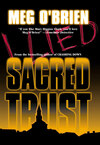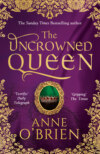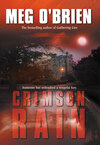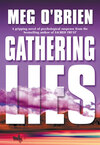Kitabı oku: «Sacred Trust», sayfa 5
As Jeffrey walks in, I sit up, pulling the sheets to my neck and playing for time. “You’re home early,” I complain loudly, hoping to put the blame on him for catching us.
He takes in the scene with one glance.
“Well, if I’d known you were entertaining, I’d have called ahead,” he says mildly. Despite his attempt at indifference, I could swear his graying George Clooney hair is bristling—like a lion’s when he finds a strange male in his lair.
Ben, for his part, struggles to maintain his dignity—a losing battle, given that he’s lying naked next to another man’s wife. I can hear the wheels rolling: Do I get out of bed and run into the bathroom while they duke it out, or do I grab my clothes and make a fast departure out the door?
Ben hates confrontation of the personal kind. Give him a gun and a perp, and he’s a whole other guy.
“Stay where you are, Ben,” I say firmly. “It’s not as if this is something new for Jeffrey, after all.”
I feel him sliding down under the sheets inch by inch.
“Hello, Ben,” Jeffrey says. “How’s the bid for promotion going? I hear you’re up for chief.”
The threat to expose us is obvious. Whether Jeffrey will carry it out while I’ve got him and the bimbo as collateral is doubtful. Still, he must swagger a bit.
“It’s going fine,” Ben says in a conversational voice that makes me proud. He has apparently decided to pretend he’s standing in our living room, dressed in a tux. “How are things with you, Jeffrey?”
“Fine, fine.” Jeffrey heads for his walk-in closet. “Well, you two go on with what you were doing. I just came back for clean shirts.”
Ben and I look at each other. Jeffrey gets his shirts. He stops at the bureau for cuff links and takes his time finding them. Ben and I are motionless in the bed, sheets to our necks, barely breathing.
“I’ll be off now,” Jeffrey says a hundred years later, making his way to the door. He stops only momentarily on the landing as Murphy growls again. We hear his footsteps going down the stairs, then his car leaving.
Ben groans and throws the comforter over his face. His voice comes muffled from under the pillowy down. “If he tells anyone, I’m a goner.”
I crawl under the covers and reach for him. “Well, then, young fella, I say we make hay while the sun shines. Let’s see, what have we here…”
5
Marti is buried in a small Catholic cemetery south of Carmel, along the road to Big Sur. The burial site is on an old Spanish estate, and I have learned through Ben that the owner, Lydia Greyson, came forward to offer it. She would be honored, she said, to have Marti laid to rest along with her own ancestors. In addition, she pledged that Marti’s grave would be well protected from curiosity seekers, behind the high adobe walls of the estate.
Who this woman is, or why she has offered a family burial plot to Marti, I don’t know. I can only suppose she must know Marti’s brother, Ned, or at least have talked to him, as he would have had to agree to the arrangements.
A long line of black cars and limos winds southward along the twisting road. There are places where one can drive only fifteen miles per hour in the best of weather, and the best of weather has not graced us today. Fog creeps in on great big elephant feet, clomping up from the sea and over the road, where it smothers the hills.
Jeffrey drives our black Mercedes, and we sit quietly beside each other, steeped in our individual thoughts. Ahead of us, in a limo, is Ned, whom I’ve never really met, despite the few times I saw him years ago with Marti. When we were in high school, Ned was away in college, and when we went to Joseph and Mary, the most he ever did was show up on visiting Sunday once or twice.
With Ned are two women veiled in black. One seemed slightly familiar at the church, in the way she carried herself, but there was no way of knowing who she might be. Family, surely, to be veiled that way. This surprises me, as I had thought all of Marti’s other relatives had passed away.
Behind us are limos filled with local residents, some of whom want only to be part of history. A great many, however, genuinely came to offer their respects to Marti. This show of affection stuns me. Even though I have always known how much my friend was loved, she has reached many more people with her photographs and stories than I’d realized. In the church, the words Shining Bright were whispered often among the pews.
Bringing up the rear of the cortege are local and international reporters. Everyone who could possibly commandeer a limo or car has become part of this today, including famous anchors like Jane Pauley, Tom Brokaw, Katie Couric. Our local congressman was at the church, as well as more than one senator, and I wonder briefly what Marti would say about this fuss. Would she be gratified? Or embarrassed? My guess is a little of both.
“Hmm? What?” Jeffrey says.
“I didn’t say anything.”
“You made a noise.”
“I was smiling.”
“No, you made a noise.” His voice is cool, though his hands tighten on the steering wheel. “A snort, unless I miss my guess.”
“Well, if anyone knows my snort, it would be you, Jeffrey.”
“Not only am I far too familiar with it, but I’m rather certain I know what you’re snorting at now, as well.”
“No doubt you are.”
“You think this is all too much, all this attention paid to Marti.”
I look at him. “And you? What do you think, Jeffrey?”
“That you are far too cynical. It’s your worst failing.”
After a moment of silence I can’t help it. I snort. “Well, at least we know it’s not your worst failing, Jeffrey.”
My husband stands beside me, his arm linked through mine supportively as photographers snap more photos of us than of Marti’s grave. “I told you they didn’t split,” I hear one of them say, not bothering to keep her voice down, while another murmurs, “She looks like she’s holding up better than him.”
It’s true that Jeffrey doesn’t look well. His eyes are strained, his face gaunt. I would feel sorry for him, but I’m guessing that exercise, not illness, is at fault for this. Most of Jeffrey’s life energy is sucked dry these days by his frenetic attempts to stay young and firm for the bimbo. The old platitude does hold true: After a certain age one must choose between the face or the ass. The fact that I’ve added a few pounds as ballast helps to plump out any wrinkles that might threaten to emerge as I move closer to forty, while Jeffrey lifts the weights, runs the miles and hurtles recklessly toward the sea of romance and early cardiac arrest.
On the other side of the coffin from us are the two women in black with veils over their faces, and Marti’s brother, Ned. His face is somber, though his mouth twists in what might be rancor at the priest’s words: “To you, oh Lord, we commend the spirit of this woman of utmost virtue and unfailing faith. We ask your angels to carry her swiftly to that High Place where you reside, to guide and keep her throughout her journey home…”
My eyes meet Ned’s, and I am shocked by the look of hatred he sends me. Within moments I shiver and am forced to look away. I can still feel those cold dark eyes on me, however, and the emotion behind them. Searching my mind, I can think of no reason for it, and after another moment I give a mental shrug and go back to listening to the priest. He is saying the prayers of the dead, and the two women next to Ned are making the sign of the cross. As the service ends, one steps forward to toss a handful of dirt onto the lowered coffin. She draws the black veil from her face and looks directly at me. I am shocked to see the now-aged but unmistakable face of Sister Helen.
It has been twenty years, but not a day has gone by in the look that passes between us. I am still the novice, she the angry and disappointed sponsor of my and Marti’s ill-fated gift of our lives to God.
The other woman draws her veil back, as well—a stranger with short, steel-gray hair. No one I have ever met before. Sister Helen turns her gaze from me and speaks softly to her companion, who nods and walks slowly back toward the line of waiting black cars. Sister Helen moves toward me.
“Good morning, Abby,” she says, the gravelly voice still strong and just as intimidating. She is in civilian dress, a black suit, stockings and shoes, which further surprises me. Years ago she swore never to stop wearing her habit.
The look she gives me is one I remember, though—stern and unyielding. I feel I’ve done something wrong and, as if in a time warp, I look down quickly to see if I’ve got my white postulant’s collar on backward, or if my black oxfords have come untied from too much racing along the halls.
Is there a run in my black hose? Did I spill gravy down my front?
The glint in Sister Helen’s eyes tells me she knows exactly what I’m thinking and is enjoying every moment of my discomfort.
“A sad day,” she says.
“Yes,” I agree. “A very sad day. I’m surprised to see you here, Sister. How are you? How have you been?”
She doesn’t answer but continues to appraise me. An awkward silence ensues.
“Did you, uh…did you and Marti keep in touch all these years?” I try.
“We spoke now and then,” she says noncommittally.
I wonder why Marti never mentioned being in contact with Sister Helen.
“Are you still in Santa Rosa?” I ask. “At Mary Star of the Sea?”
“Hardly.”
Her tone is bitter, and I don’t know what to make of that.
“You’ve retired?”
“I suppose one might say that.”
I’m at a loss.
“And you, Abigail?” she asks.
It has been years since anyone called me that, which oddly adds to my discomfort.
“I live here now. In Carmel.”
“Of course you do. And why not?”
This time her tone annoys me. “What do you mean, Sister?”
“I mean, Abigail, that you always land on your feet. Despite the cost to others.”
Her hostility astounds me. It is as if, in her mind, my breach of promise to become the Bride of Christ occurred yesterday.
We face each other, two women with far too much to say, and too many years behind us to say it.
At this moment Marti’s brother comes to stand behind Sister Helen, placing a hand on her shoulder.
“Helen?” he says. “We’re ready to leave.”
She gives him a brief look and turns back to me. “You know Marti’s brother, Ned?” she asks with what seems to be studied courtesy.
“No, we’ve never met.”
Up close I can see that Ned Bright is handsome, in a rather old-fashioned, Jane Austen–novel way. His face is thin, like Marti’s, composed of elegant angles and lines. The brown eyes, enhanced by long lashes, can only be described as lovely.
I extend my hand to shake his, but he doesn’t take it.
“It’s you who killed her,” he says. “When all’s said and done, it’s you.”
I am stunned. “That…that isn’t true!” I can only manage, as a third-grader might. “Marti was my best friend!”
“You were never a friend to my sister.”
I look at Sister Helen for help, for support and confirmation that none of this is happening, but she turns away.
“I’m ready to leave,” she says crisply.
Ned takes her arm and they walk together, joining the other woman at one of the few remaining cars. I stare after them in bewilderment and shock.
Feeling newly bereft, I ache to be at home with my dog, my books, my bed. It has been only four days since Marti died, and every moment has been packed with grief woven tortuously with brooding attempts to figure out what happened.
I wonder when the Secret Service will be on me again. I’ve done my best to throw them off the track, Marti. Ben’s the only one I’ve told about your son. With any luck…
Suddenly, to stand on yet another foggy, rain-soaked hill when my friend is no longer here, and then to be told she was not my friend, is more than I can stand without breaking down.
Looking around for Jeffrey I find him schmoozing with a group of people we know, as well as several strangers. I watch my husband shake hands, nod, smile, laugh and generally act as if he’s at a political clambake. Sighing, I turn away, thinking to walk back to our car and wait for him.
It is only now I see another man, standing fifty feet back from the burial area, under a row of eucalyptus trees. He seems about my age, tall and rather frail. A stiff breeze has sprung up, pushing the fog into my skin, and just as I tighten my black cape around me, the man seems to huddle into a navy blue windbreaker. My path takes me closer to him, and I see that he holds in one hand a bunch of pink roses.
Something about this is familiar. Déjà vu. Where have I seen this scene before?
Then it comes to me: Tommy. Tommy Lawrence, from high school. A boy from St. John’s, a nerd whom none of the girls liked. He once gave Marti a tiny bunch of pink roses. He met her at the bus stop one morning, his face hot, hands shaking. While a group of our classmates stood by and snickered, Marti thanked the boy warmly, pushing her then waist-length hair from her face. She pressed the roses later and kept them between the pages of a history book.
“He gave me more than these roses,” she explained to me. “What he did took a lot of courage, and that deserves to be honored.”
Remembering, I walk toward Tommy, stepping up my pace. He sees me and glances away, as if not wanting to make contact. He is still shy, I think, and I smile to put him at ease. Drawing close, I can make out tears in his eyes. His cheeks are wet as if several have already fallen.
“Tommy,” I say. “Tommy Lawrence. How are you?”
“Hi, Abby.”
“You remember me?”
He gives a shrug. “Sure. You were Marti’s best friend.”
“But we never even talked. How did you know?”
“I guess I knew a lot about Marti. Back then, anyway.”
Of course. He was obsessed with her. In the end, a simple gift of pink roses turned into hanging outside her house at night, following her to school in the morning and being outside on the steps when classes let out. What for Marti began as mild embarrassment later turned into a case of nerves—even fear.
“I never meant her any harm,” he says now, as if reading my mind. “I just wanted to be around her.”
“Tommy, you frightened her,” I say. “If you didn’t want to hurt her…”
“Why did I do it?” He shakes his head. “I guess I couldn’t help myself. It was like we were always meant to be together, from the first time I saw her. And when she thanked me for the roses I gave her that day, I thought I knew it for sure. She kept saying she only wanted to be friends, but I told myself if I could just show her I really cared, she’d like me, too.”
It was a story old as the hills. Do enough nice things for someone, be good enough to them, and they’ll learn to love you. How many people with hopeless crushes cling to that belief—before reality sets in?
“She did like you, Tommy,” I say gently. “She just wasn’t interested right then. You know?”
“Yeah. Yeah, I guess you’re right.” A lock of brown hair falls over his forehead, bringing back the image of that young boy. “Pretty stupid, huh?”
He smiles at me, and his whole demeanor changes. “But I’ve grown up. I no longer lurk outside women’s houses.” He looks down at the pink roses, and sadness settles over his face again. “I just wanted to bring her flowers.”
Sympathy for the young boy who, at least for a short while, brought a smile to Marti’s face, makes me take his free hand. “C’mon. I’ll go with you.”
His grateful glance is enough to make me glad I decided to do that. We cross the lawn to Marti’s grave, where Jeffrey is still holding court. Too bad, I think, he didn’t bring champagne and hors d’ouevres. The party would be complete.
But I’m too used to this sort of thing, and too jaded about Jeffrey’s shenanigans, to invest much energy into being annoyed. I figure karma will get Jeffrey in the end. Or somewhere.
I stand with Tommy Lawrence as he takes a single pink rose from the bouquet and drops it onto the coffin of the woman he once loved from afar. The rest of the bouquet he puts beside the grave site, with the others. When he turns back to me I see he is weeping again.
“I know it’s been years,” he says, wiping his eyes with the back of one slender hand. “But it’s like it was only yesterday.”
“I know,” I say. “I’ve been feeling that same sort of thing. Everything from back then seems so immediate somehow, as if we’ve warped right back into that time.”
He smiles. “Thanks for understanding. Can I drop you off somewhere?”
I shake my head. “My husband…” I motion toward Jeffrey.
“He doesn’t look like he’s ready to leave,” Tommy says.
“No, he doesn’t, does he?”
“I have a couple of hours till my plane leaves. Let me buy you a cup of coffee. To thank you,” he adds quickly. “I don’t mean anything by it. You don’t have to worry.”
I smile to let him know I’m not in the least worried. Thinking for a moment, I realize that no one from the funeral mentioned getting together for coffee and food afterward. Unless Ned and Sister Helen were doing that, and the other woman with them, it seems that Marti—once cold in the ground—is to be forgotten.
“Let’s go back to my house,” I say. “Jeffrey will be along eventually, and he’ll probably bring people with him. Meanwhile we can have coffee and sandwiches. How’s that? You can follow me in your car.”
“Sounds great,” he says. “But I took a cab here.”
“Then you can come with me.”
“Great,” he says again. “Thanks.”
As we walk toward the Mercedes, I turn back to wave at Jeffrey and motion that we’re going ahead—he’ll need to grab a ride. His return wave is automatic, the smile fixed and bland. I doubt he even knows I’m leaving.
Ben does, though. He’s been standing by the line of cars on the drive, with his partner, Arnie, throughout the ceremony. Even closer to the graveside I’ve seen a couple of detectives from the sheriff’s department and the police chief from Monterey. No Secret Service, however.
Ben lifts a brow at me as I pass him to get to my car, though he doesn’t speak, probably because of Tommy. I know, of course, why they’re here. Ben and Arnie were in the back of the church during Mass, earlier, then followed the funeral procession on the long trek down Highway 1 toward Big Sur—the unmarked brown police car sticking out like a sore thumb behind all the black limos. “The Brown Turd,” Ben calls it. Unmarked, though absurdly known to every crook in town, it’s Ben’s favorite car, and to the consternation of his fellow officers, he refuses to give it up.
The reason he, Arnie and the sheriff’s detectives are here today is because it’s common knowledge, according to Ben, that the murderer often turns up at the funeral of the murdered.
I wonder if they’ve pegged anyone yet. Anyone besides me, that is.
“This place is fabulous,” Tommy Lawrence says as I rinse out the coffeemaker and pour beans into the grinder. “Haven’t I seen it somewhere? Like in a magazine?”
“You may have,” I admit, a trifle embarrassed. “It’s nice, but old,” I add, as if in apology for having so much. “There are a lot of things going wrong with it suddenly.”
It has occurred to me that Tommy’s shirt collar, though clean, is a bit frayed, and his dark green pants are thin in the knee.
He is standing by one of the casement windows looking out onto the side patio. “You’re right,” he says, wiggling the window frame. “The screws holding this on are loose. Anybody could get in here. I hope you have good security.”
“I’ve got Murphy,” I say. “You may have noticed he hasn’t left my side since we walked through the door.”
I look down at Murph, who thumps his tail.
“Is that because I’m here?” Tommy asks.
“Probably.”
“Well, I hate to tell you, but he doesn’t act much like a watchdog. More like a happy-go-lucky puppy.”
“You think so? Try something,” I offer.
“Try something?”
“Like taking my arm, as if you’re going to do something to me.”
He looks embarrassed, but does as I ask, gripping my upper arm. Murphy is on his feet immediately, growling, teeth bared.
Tommy drops his hand. “Okay, okay,” he says, backing off and laughing. “It’s okay, boy.”
Murph doesn’t back down till I tell him to, and Tommy looks at me, amazed. “Geez! You’ve really got him trained.”
“No, that’s the funny thing about it. He’s not trained at all. Just naturally that way. You can even pet him, and the worst he’ll do is lick you to death. Just don’t try anything with me.”
Tommy leans down and tentatively pats Murph on the head, stroking his fur from head to back.
“What’s this?” he asks, feeling the rough spot where the vet cut back the hair to treat the wound on Murph’s back.
“He had a little mishap,” I say, not wanting to talk about it. “He’s all right now.”
“A mishap? This looks like more than a mishap. Poor guy.” Tommy parts the fur to try to see the wound better, but Murph growls low in his throat, telling him in no uncertain terms to back off.
Tommy settles on his heels. “Poor guy,” he says again.
Within minutes the coffee is ready, and I take down two cobalt-blue mugs and fill them with the steaming brew. Handing one to Tommy, I lead him into the living room. Murphy trails behind.
“Let’s sit here by the window,” I say. “The sun’s coming out at last.”
As we settle in, he asks, “Can we talk?”
“Of course. I thought we were.”
“No, I mean about Marti.”
I wonder if he knows how it happened. What was done to her. It was in all the papers, on all the news. But is he going to ask for details? I’m not sure I’m up to that.
“I just wondered,” he says, “if you know what she was doing all these years?”
I look at him over my cup, surprised. “Marti was a photojournalist. You didn’t know? She traveled all over the world with her work and won several major awards.”
“No, I’m aware of all that. What did she do with her life? Her personal life? They say she never married, never had a family. What did she do all those years?”
I look at him sharply. “I don’t know, Tommy, why do you ask?”
He seems to tense up. His hands, which are long and thin, wrap around the coffee mug as if to stay warm. “Curiosity, I guess. I mean, I’ve wondered if she was happy. If she ever…you know, loved anyone.”
I set down my cup. “You still cared about her,” I say softly. “All this time, you never got over her.”
He shakes his head. “I couldn’t just forget her. You don’t, you know…forget the first person you ever loved.”
“But, Tommy, it wasn’t really a relationship. She never returned your feelings.”
He seems about to say something, then clamps his mouth shut. Tears brim his eyes. “It doesn’t matter,” he says finally. “You don’t stop caring just because the other person…” He shakes his head, wiping at his eyes with a thumb.
“I think she was happy,” I say gently. “As happy as anyone could be who’s devoted to her work and doesn’t have time for relationships.”
“So she was never in love?”
“I…I didn’t say that. I think she was. Once.”
He straightens and looks at me sharply. “With who?”
“I don’t know.”
“Then how do you know—”
“I just do. Can we leave it at that, Tommy?”
He falls silent. Then, “Just one thing. She had a baby, right? That’s what they said on the news, that she’d had a Cesarean operation.”
Sighing, I stand. “Tommy, I can’t talk about that. Besides, I think I hear Jeffrey coming into the garage. And there are cars pulling up in front. Time to play hostess.” For some reason, I feel relieved that my husband is about to walk through the door.
“Sure. Sorry if I pushed. I’ll leave.”
“No…look, I didn’t mean that. Please stay.” We walk back into the kitchen. “How long do you have till your plane leaves?” I am thinking another hour at the most.
“Actually, till about ten tonight.”
“Ten? But it’s barely past noon. I thought you said a couple of hours.”
He grins. “That was only because I wanted you to think I’d be leaving soon. That way I figured you wouldn’t feel you had to entertain me. I was going to buy you some coffee, if you let me, then go for a walk on the beach and maybe get some dinner somewhere.”
I can’t help but be impressed with his honesty. But then, the boy I remember always was honest about his feelings. As Marti said, it took a lot of courage for him to even approach her the first time with those flowers. And it’s rare to find people who carry their feelings out in the open, where people can see them.
Besides, it feels good to have someone here who knew and loved Marti. In the past hour or so, the pain has eased a bit.
“Well, if you’ve got all that much time,” I say, “I think I’ll just lasso you and put you to work.” I hand Tommy bottles of white wine from the fridge and reds from the wine rack in a niche by the pantry. “Take these into the living room, will you? Set them on that sideboard over by the fireplace. And then get yourself back in here, boy. You can help with hor’s d’ouevres.”
“Those cute little hot dogs in crescent rolls?” he asks, grinning as he crosses the room.
“Pigs in a blanket? Hah. I doubt Jeffrey…” Remembering that Marti loved pigs in a blanket, I shrug. This could be, at least in my head—and maybe in Tommy’s—her party, after all.
“Oh, why the hell not? Pigs in a blanket it is.”
“Hoo, boy,” Tommy says.
Jeffrey’s party turns out to be the typical last-minute affair. I have never known when he would invite people over, and I’ve always understood that this was my job, part of why he married me—to have a hostess. I’ve even gotten rather good at it.
Once having performed my usual duties, I stand with Tommy Lawrence in the dining-room area, safely away from the hullabaloo in the living room. People have come just as they dressed for the funeral before noon, in toned-down blacks and grays. Still, there are more diamonds, emeralds and rubies in my living room this afternoon than at Tiffany’s and Car-tier combined. Most of the conversation revolves around politics, the stock market and golf, and I’ve heard every story there is to be told over the past ten years. People forget what they’ve said to whom and tend to repeat their victory tales. Personally, I prefer to listen to Frannie, who cleans for most of these people and delivers me tidbits that give me laughs and get me through the day.
For instance, Frannie has told me how, as she was on her way to clean Cynthia Slyke’s kitchen, scrub her floors and wipe pubic hairs out of her tubs, she passed Cynthia on the drive, and Cynthia—leaving for tennis in her tan and chocolate Mercedes convertible—waved at her and warbled, “Bye-bye, dear! Have fun!”
“Fun!” Frannie ranted while telling me about it the next day. “And me seven months pregnant with Billy! It’s a wonder he wasn’t born with a burnt nose from all the Clorox fumes, or with the cord wrapped around his neck, all the bending I did for that airhead!”
Not all of Jeffrey’s guests are idiots, of course. There’s Harry Blimm, president of the Seacoast Bank of Carmel, who comes over to me now, taking my hand. He pats it with his chubby one. “I’m so sorry about your friend,” he says. “We’ll miss her terribly.”
“We?”
“At Haven House, that is. She was our strongest supporter.” He shakes his head sadly. “I tell you, she leaves a hole we have little hope of filling.”
I feel stupid, as I don’t know what he is talking about. “Haven House?”
“Our shelter for the homeless,” he says. “In Seaside. You didn’t know?”
I shake my head.
“There are so many women and children in the shelters now,” he says. “Marti came and talked with them several times. She seemed to have her own private agenda in choosing Haven House for volunteer work. Never would talk about it, though.” He peers at me curiously. “I don’t suppose you might know?”
“No, I’m sorry, I don’t. This is all news to me, Harry. I do remember she was doing several pieces about the homeless, as well as rape victims. She flew out here several times for that.”
“No, no, no, this was something entirely separate from that. Marti never took photographs at Haven House. The women’s and children’s privacy were everything to her.”
“I see. Exactly what did she do at Haven House, then?”
“Simply talked with women, held their hands, cried with them. A beautiful soul.” Again he flicks a look at me. “I’m surprised you didn’t know.”
“I am too, Harry. And how do you know about all this?”
“Well, I am on the board of Haven House, you know. Have been for twenty years.”
More news. I wonder, briefly, where I’ve been. Head in the sand? Too absorbed in my own difficulties to worry about others?
After that Harry wanders off, and later, when everyone is well soused, I see our esteemed bank president dancing with his wife’s red hoop earrings on, and one of my colorful Spanish tablecloths wrapped around his waist. His bald head glimmers under the crystal chandelier in the living room, and everyone stands around clapping in time to the music and Harry’s tomfoolery.
There was a time when I would have cheered him on, as well. Now I know too much. Harry is in Jeffrey’s pocket, and a very deep pocket it is.
There is nothing, I think, that moves the world like cash. Unless it happens to be blackmail.
Tommy Lawrence joins me in the kitchen.
“You sure work hard at all this,” he says as I start to clean up. “Don’t people like you have maids?”
I laugh. “What do you know about people like me?”
“Not much, I guess.”
“That’s what I thought. The truth is, I like doing the scut work for parties. It gives me a means of escape, so I don’t have to socialize so much.”
“You don’t like socializing?”
“Tommy, Carmel is a small town. I’ve known most of Jeffrey’s friends for years. Let’s say I’m jaded, okay?”
“And then there’s the way you look at him…” Tommy says, shaking his head.
Ücretsiz ön izlemeyi tamamladınız.












